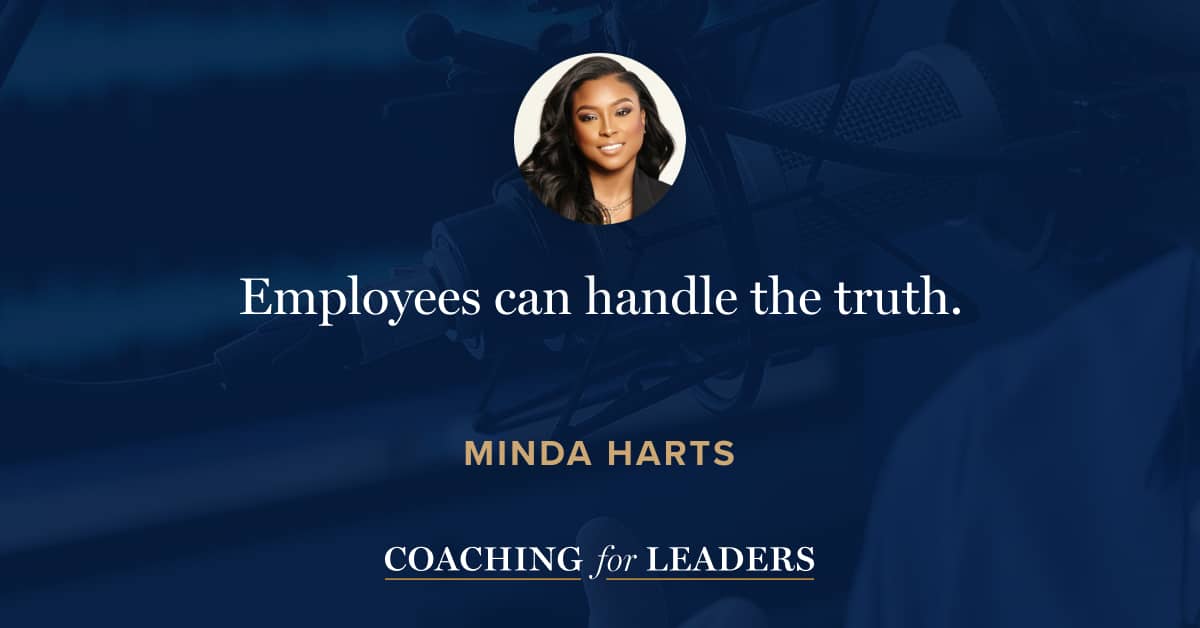Minda Harts: Talk to Me Nice
Minda Harts is a bestselling author, workplace consultant, and sought-after keynote speaker who is redefining what it means to build trust in the workplace. As the bestselling author of The Memo, Right Within, and You Are More Than Magic, Minda has empowered thousands to be their own best advocates and navigate workplace challenges with confidence. She has just released her newest book, Talk to Me Nice: The Seven Trust Languages for a Better Workplace.
Sometimes we assume that we’re helping by shielding people from difficult news. But as we all know, virtually everyone wants transparency from leaders. In this conversation, Minda shows us how to get better at it.
Key Points
- You’re not helping by shielding people from difficult conversations.
- Most everyone assumes baseline behaviors of employees. Employees expect reciprocity through transparency.
- We often think about transparency with information that’s known. Just as important is clarity about what’s not known.
- Even when you can’t share news, you can put time and resources into what will help people handle a new reality when it arrives.
- Transparency provides clear, honest, and timely information.
- Promote transparency in roles. A job description is a helpful starting point for this.
- Good intentions do not mean good impact. When changes happen, communicate them as quickly as practical.
Resources Mentioned
Interview Notes
Download my interview notes in PDF format (free membership required).
Related Episodes
- The Path Towards Trusting Relationships, with Edgar Schein and Peter Schein (episode 539)
- How to Help Difficult Conversations Go Better, with Sheila Heen (episode 655)
- Preparing for a Conversation with Someone You Don’t Trust, with Charles Feltman (episode 708)
Expert Partner
Are you a talent development or human resources leader seeking a coach for an internal client? Coaching for Leaders has partnered with some of the top coaches in the world, including a number of past podcast guests. Help us make an introduction by visiting our Expert Partners Page and telling us what you’re seeking in a coach.
Discover More
Activate your free membership for full access to the entire library of interviews since 2011, searchable by topic. To accelerate your learning, uncover more inside Coaching for Leaders Plus.





